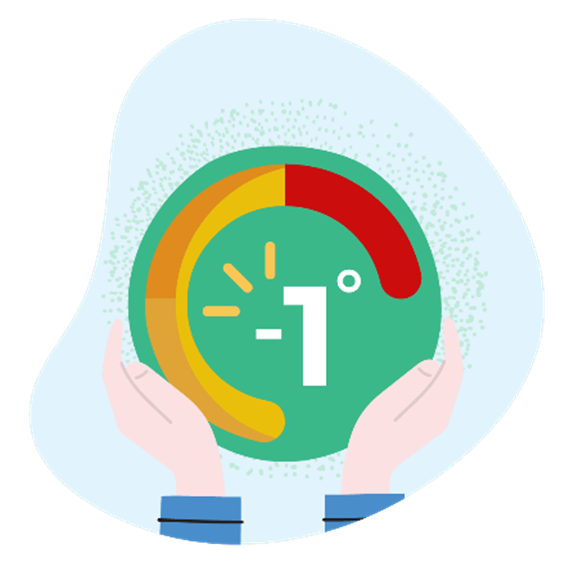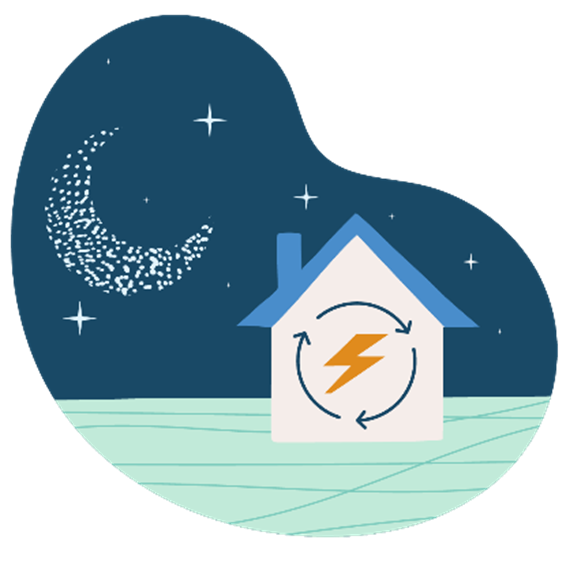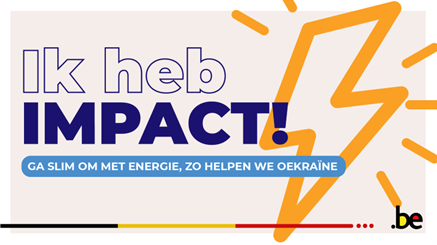Case Study Overview
Design
Target audience: The campaign focused primarily on households, with businesses and public bodies as a secondary target. The campaign tips were clearly aimed towards households and did not offer organisation-specific advice.
Objectives and message: Belgium imported only 6% of its gas from Russia and had efficient LNG connections, but the call to save energy was important to reduce imports from neighbouring countries such as Germany and The Netherlands that were dependent on Russia. The goal was to reduce electricity, oil and gas consumption. Messaging focused on five tips for Belgian households, geared toward saving energy without minimizing comfort. Measures and targets were chosen based on prior analysis of the potential for energy savings from different measures and consumer’s potential to follow the recommendations.
Resources: Approximately EUR 200 000 was allocated to the campaign, this was primarily spent in two areas; the purchase of commercial radio advertising time and website design.
An external advertisement agency was put in charge of creating the radio spot, while most other content was produced inhouse.
The most important lessons learned: The impact of the campaign was relatively limited due to the constraints around advertising budget. Increasing the spending for future campaigns would likely result in greater impact
Implementation

Media channels used: The campaign messages were primarily disseminated through radio and a dedicated website.
Recommended measures: Because the campaign was relatively limited in time and scope, there was a clear focus on five short-term actions to immediately save energy. Each measure included some indicative quantification of monetary or energy savings. Next to these short-term measures, recommendations were made to consumers to invest in structural measures such as insulation and solar PV.
- Lowering the thermostat by 1˚C and heating only the rooms that are used and close the doors of rooms that are not heated.

- Turning on the night mode (15˚C) of your heater one hour earlier. For floor heating, setting the temperature at 17 or 18˚C minimum was advised, to avoid spending energy on heating in the morning.
- Monitoring the large energy consumers in the house and take note of the energy label on the product being purchased.
- Commuting differently to save costs and travel more sustainably, such as biking or walking when having to travel short distances and public transport to cover long distances.
- Cooking smart by heating up a plate or drink using the microwave, which consumes up to four times less energy than a gas hob. Switching from gas to induction was also advised, as it results in significant energy efficiency gains.

Stakeholder involvement: The campaign was launched by the Minister of Energy. A unique aspect of the campaign was the collaboration with regional actors, which play an important role in governance in Belgium. Specifically, the campaign forwarded visitors to regional websites of Flanders, Wallonia and Brussels for information on grants or extra tips.
The most important lessons learned: The connection to regional government website ensured consistency among different governance levels and a coherent message.
Tracking
Impacts: The campaign reached a significant audience through radio commercials, but overall impacts were relatively limited due to budgetary constraints of the campaign.
Outcomes: The campaign contributed to reaching an 18.5% reduction in Belgian gas consumption, in line with the EU energy reduction targets.
A new campaign was launched in parallel to this campaign (https://www.energywatchers.be/nl), focusing on lowering energy consumption through efficiency, with extensive information shared on the website including specific tools and more than a hundred tips and a gamification aspect.
The most important lessons learned: Monitoring the impact of the campaign can help inform future revisions and prove its effectiveness.
Table Heading
| Agency | Federal Public Service Economy, SMEs and energy (Federale Overheidsdienst Economie, K.M.O, Middenstand en Energie) |
| Slogan | I have impact (“ik heb impact”) |
| Website | https://www.ikhebimpact.be/ |
| Contact person | Mark de Winter (mark.dewinter@economie.fgov.be) |


